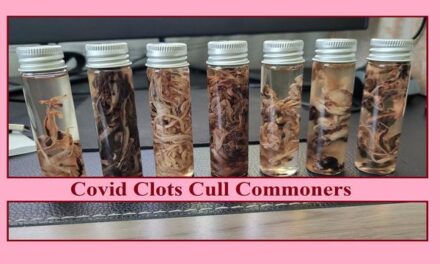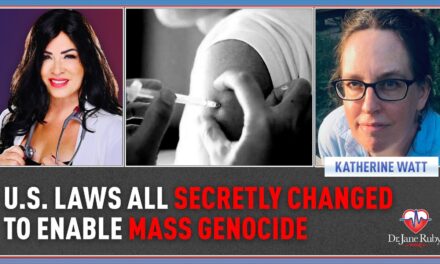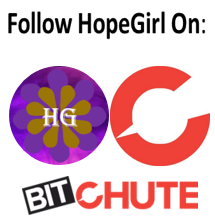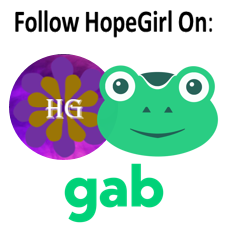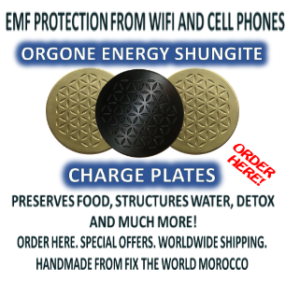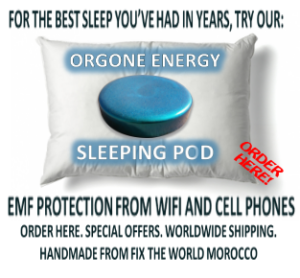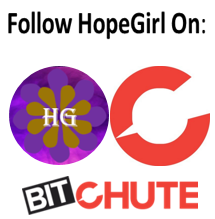The media (persuaded by the drug industry and the medical establishment which are, sadly, much the same thing) often seems to believe that chemotherapy is the only way to treat cancer. They may be rich and powerful but they’re wrong.
And charities, which supposedly exist to care for patients, are too often simply part of the cancer industry, beholden to the international pharmaceutical companies which make billions out of selling drugs. In the global cancer industry, the charities largely provide marketing and public relations services while the drug companies control the research that is done.
Here is the preface from my new book: `What doctors won’t tell you about chemotherapy’.
Preface
The media (persuaded by the drug industry and the medical establishment which are, sadly, much the same thing) often seems to believe that chemotherapy is the only way to treat cancer. They may be rich and powerful but they’re wrong. The Guardian newspaper in the UK recently told their readers that “the damage to healthy tissues tends to be temporary” and “side effects usually disappear once the treatment is over.” If The Guardian studies the evidence in this book, they may like to reconsider that advice.
Information is the currency and capital for everything worthwhile we do. But there is more misinformation about cancer than just about anything else. Much of the misinformation is deliberate and corporate and there is more fraud, more confusion and more lying in this area of medicine than almost anywhere else. Charities, which supposedly exist to care for patients, are too often simply part of the cancer industry, beholden to the international pharmaceutical companies which make billions out of selling drugs which do little or no good and which are known to kill people. I don’t know of any cancer charity which doesn’t have links (usually financial) with big drug companies. This is, sadly, by no means unusual. When specific charities and patient associations were first formed, they were usually dedicated to caring and campaigning for patients but, sadly, charities and patient associations in all areas of medicine have been corrupted by the money which big drug companies have available for so-called marketing programmes. In the global cancer industry, the charities largely provide marketing and public relations services while the drug companies control the research that is done. When commercially inconvenient results are produced, they quickly suppress anything which might be financially damaging.
Cancer is not a single disease. It is a word which describes a great many quite different diseases. The one thing these diseases all have in common is that there is an uncontrolled and disorderly growth of abnormal cells. It is quite normal for cells to grow and to reproduce. Every minute, in every human body, an astonishing ten million cells divide. Usually, everything goes well. The cells divide in the right way and at the right time. But when a cell becomes a “cancer cell” it grows and divides at an abnormally rapid rate. These abnormal “cancer cells” destroy or push aside the normal, functioning cells. If the “cancer cells” are not stopped they may spread to other parts of the body and take up residence in other, different organs. “Cancer cells” may be carried around the body through the blood vessels or the lymph channels. When a cancer spreads and appears in another part of the body, the new growths are known as secondaries or metastases. Cancer can also spread by “crab-like” outgrowths (hence the name “cancer”).
Cancer is not the unknown, dark shrouded mystery killer that it is often thought to be. We do not know enough to recommend a lifestyle which will enable all individuals to avoid all cancers. But we know enough to make a difference. If we make the decision to avoid those factors which research has shown can lead to the development of cancer, and to do those things which can strengthen our defences against cancer, then I believe that we can dramatically influence our susceptibility to the disease and we can reduce the chances of a recurrence. We can’t stop it permanently but we can adjust the odds in our favour.
It is now widely accepted that many of the cancers which most commonly occur, develop because outside substances trigger some sort of reaction – and cancer development – in the body. It is no secret that cigarettes, sunshine, asbestos and X-rays can and do cause cancer – more so in susceptible individuals. But it is less widely known that fatty foods and meat cause cancer. And it is less well-known that green vegetables can provide some protection against cancer.
People get cancer through bad luck and inherited susceptibilities. But they also get it through ignorance – ignorance which has been deliberately sustained through commercial greed and political expediency. When businessmen, politicians and doctors know how to prevent 80 per cent of cancers but do nothing, it is difficult to avoid the conclusion that those cancer deaths are deliberate. Eight out of ten people who die from cancer have effectively been murdered in cold blood. If cancer can be described as a disease of choice, the choice is made for us by those whose sense of responsibility does not match their authority. For too many people the choice is made by politicians, businessmen and doctors who do not understand that with knowledge comes responsibility. (The uncaring nature of politicians, fuelled by ambition mixed with panic and self-preservation, rather than with care for their electorate, was never better illustrated than when British Prime Minister Liz Truss and her Chancellor Kwasi Kwarteng were reported to have looked at stopping all cancer treatment available through Britain’s National Health Service in order to cut Government expenditure. If that is true, and it seems to be, it is despicable and grotesque; particularly when we remember that both Truss and Kwarteng would know that if they or their loved ones had cancer they would, as leaders of the Government, be entitled to, or able to buy, the best private medical treatment. Mind you, even that was perhaps not the worst I’ve ever heard. Parts of the British Medical Establishment had, prior to that, talked about cutting the amount of time and money spent on diagnosing and treating illness as a nod from the medical profession, theoretically towards helping to deal with global warming, but I believe as a part of reducing health care for Net Zero and the Great Reset.)
In the Proceedings of the Nutrition Society in 1990, Sir Richard Doll said: “There is now uniform agreement among oncologists that the incidence of cancer is determined, in large part, by factors in the environment and aspects of behaviour that are capable of modification or avoidance.”
For decades much of the international “cancer industry” has been devoted to finding magical “cures” for cancer – with little useful effect. And the greatest part of their energy has been expended on developing forms of chemotherapy – with little regard for the fact that the extent of the damage done by chemotherapy can often (indeed, usually) far exceed the value of the treatment. Chemotherapy makes huge amounts of money for the drug industry but as I will show, the evidence demonstrates that as far as many patients are concerned it probably does more harm than good.
Changing habits and customs can take decades and generations. I have absolutely no doubt that in a few decades time eating meat and drinking milk, sunbathing and the consumption of additive-rich foods will, like smoking tobacco, be regarded as bizarre and reckless practices. And routinely recommending toxic chemotherapy for patients diagnosed with cancer will be reckless bordering on criminal behaviour. Our descendants will not understand why we exposed ourselves to such unnecessary risks.
But it will take time for those changes to take place. There are laboratories to dismantle and companies to close down; butchers’ shops to shut and farmers to direct away from animal farming and towards the growing of healthy crops. With so many vested interests to oppose, all this will take a long time.
But you do not have to wait for the authorities to tell you what to eat and what to avoid eating. You do not have to wait for the food companies to start selling foods that will limit your chances of developing cancer. You don’t have to wait for the cancer industry to turn its attention away from using dangerous products or to start telling you how to reduce your cancer risk. You can take action now. This book will tell you how you can help yourself reduce your cancer risk by up to 80 per cent. Since we know what causes around 80 per cent of cancers, it is clear that we also know how to avoid 80 per cent of cancers. I realise that 80% is a long way from 100%, but it’s a lot better than 0%.
I obviously cannot and do not guarantee that you won’t get cancer if you follow the advice in this book. And I have no magic remedies to offer. In many parts of the world, it is rightly considered unprofessional and illegal to offer untested remedies for cancer.
As this book’s title suggests, I have written a long section dealing in detail with the reasons why I believe that chemotherapy is over-sold. The scientific evidence shows that the advantages of chemotherapy are often vastly outweighed by the disadvantages – disadvantages which are ignored (partly through ignorance and partly because of the power exerted by the pharmaceutical industry) by the medical profession and the media.
My own suspicion is that chemotherapy is a sophisticated and profitable fraud with cancer patients as the victims. (I would be happy to debate this statement live on any network television or radio programme but I doubt if any oncologist will dare debate with me. And I doubt if any national television or radio station would dare air the debate. Both oncologists and TV editors will reject the challenge because deep down they will worry that I’m right, and this truth is something they’d prefer to keep under wraps).
Read this book and I firmly believe that your chances of developing cancer will be significantly lower than it will be if you take no action to protect yourself. And I also believe that if you do develop cancer then the advice in this book will improve your chances of fighting your cancer and winning.
Source: https://expose-news.com/2024/11/19/cancer-chemotherapy-and-lies/
Bitchute: https://www.bitchute.com/channel/YBM3rvf5ydDM/
Telegram: https://t.me/Hopegirl587
EMF Protection Products: www.ftwproject.com
QEG Clean Energy Academy: www.cleanenergyacademy.com
Forbidden Tech Book: www.forbiddentech.website

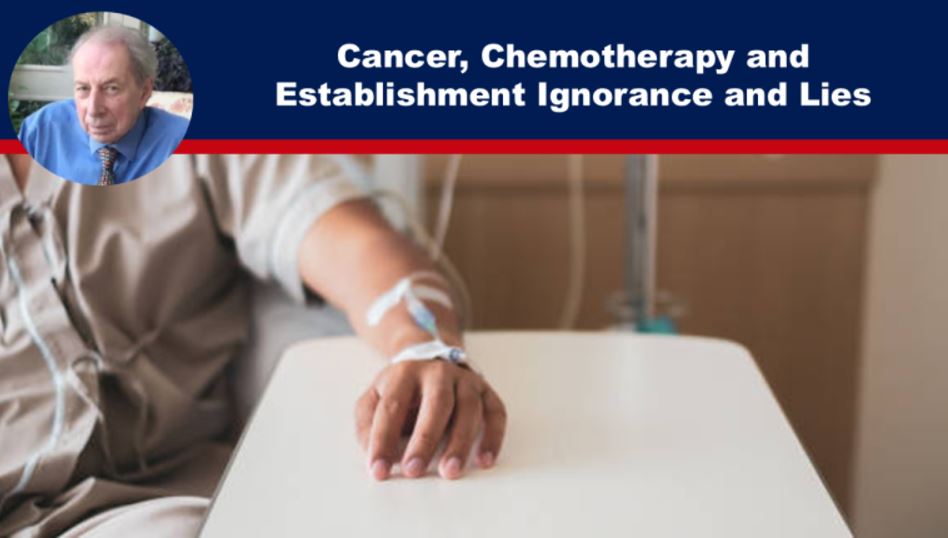
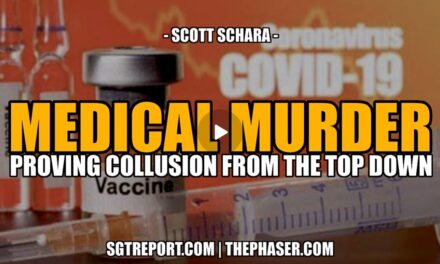
![The ‘Covid’ card ready to be played again: ‘Cases have doubled in a fortnight [confirmed by a test not testing for the “virus”] as health chiefs confirm “real deal” variant now in UK](https://www.hopegirlblog.com/wp-content/uploads/2023/08/covid-card-ready-to-be-played-again-440x264.png)
